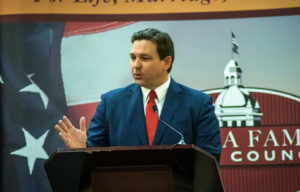(The Center Square) – The Texas Senate passed a bill that would ban diversity, equity and inclusion (DEI) policies in public higher education institutions.
The bill passed along party lines by a vote of 19-12. All Republicans voted for it; all Democrats voted against it.
SB 17, “Banning Discriminatory DEI Policies in Higher Education,” filed by Sen. Brandon Creighton, R-Conroe, with 8 cosponsors, would amend state education code to prohibit public higher education institutions in Texas from establishing or maintaining DEI offices, officers, employees, or contractors that perform the duties of a DEI office. It also would prohibit these institutions from “requiring or giving preferential consideration for certain ideological oaths or statements that undermine academic freedom and open inquiry and impede the discovery, preservation, and transmission of knowledge,” according to the bill summary.
“DEI programs have been shown to be exclusive, shown to be ineffective, and have been shown to be politically charged and many of these programs have been weaponized to compel speech rather than protecting free speech,” Creighton said, pointing to a letter sent by Gov. Greg Abbott’s chief of staff in February to all state agencies and universities that if they were implementing DEI as part of their hiring and admission policies, they were violating federal law. In response, many taxpayer-funded institutions said they “paused” their DEI programs. However, the bill would ensure they eliminate them.
“The main point of contention is the difference between ‘equity’ and ‘equality,’” Creighton said in a news release, “which can be broadly understood to stand for ‘equality of outcome’ and ‘equality of opportunity,’ respectively. Those who support DEI programs say that inherent unfairness in society means that equality of opportunity is tenuous and that certain steps need to be taken to overcome those inequities. Opponents deny this inherent unfairness, and say that universities putting a thumb on the scale in favor of certain races or ethnicities is a different form of discrimination.”
Creighton pointed to hiring policies at Texas A&M University and Texas Tech that he said appear to violate federal law. At A&M, “DEI hiring committees excluded applications from Asian Americans for certain positions because they didn’t meet certain definitions of underrepresented minorities,” Creighton said. At Texas Tech, “a biology professor had his application downgraded by a DEI hiring committee for saying that he treats all students equally.”
If his bill becomes law, these policies would be prohibited.
“In science, merit has to be the bottom line,” Creighton said. ” We’re training people to compete in the race to end cancer, but at Texas Tech this scientist was downgraded because he would not parrot DEI talking points while other applicants got a better score because those applicants included land acknowledgements to native American tribes.” These programs also “bloat university administrative budgets,” he added, “while providing little or no benefit to staff diversity.”
Sen. Royce West, D-Dallas, disagreed, arguing DEI policies are important to expand racial and ethnic diversity on campus, and to close minority enrollment gaps among other metrics. In a statement, he said, “I think it’s disingenuous to think that by removing DEI departments, that we’re going to solve the issue of diversity and inclusion. Texas owes a debt of justice, which it has only begun to pay, and use of a DEI program is the mechanism in order to pay that debt. Yes, it has some imperfections, but you don’t throw the baby out with the bathwater.”
Throughout debate over the bill, Creighton emphasized, “Texas is one of the most diverse states in the country, and we all agree that diversity contributes to our strength and our resiliency as a state. We all agree that our institutions of higher education must harness that diversity and everyone in this chamber agrees that we have no higher priority than ensuring that every Texan, regardless of race or ethnicity, is given the tools they need to succeed.”
SB 17 would prohibit public higher education institutions from spending taxpayer money allocated by the state for a fiscal year until the institution’s board submits to the legislature and the Texas Higher Education Coordinating Board a report certifying the board’s compliance with provisions of the bill.
It also would require each institution no later than Dec. 1 of every year to submit to the lieutenant governor and speaker of the House a report certifying the institution’s compliance with a section that prohibits them from “compelling, requiring, inducing, or soliciting a student enrolled at the institution, an employee or contractor of the institution, or an applicant for admission to or employment or contracting at the institution to … endorse an ideology that promotes the differential treatment of an individual or group of individuals based on race, color, or ethnicity,” among other provisions.
After the bill passed, Lt. Gov. Dan Patrick said, “Texans have some of the best higher educational opportunities available nationwide, right here at home. However, DEI hiring practices have caused division and must be stopped. Texas universities improve and the educational environment is enhanced when we recruit the best faculty based on merit and equal opportunity, not arbitrary quotas based on equity.
“The woke left’s drive to divide Texans is never-ending. Today, the Texas Senate passed SB 17 to ban divisive DEI offices and hiring practices at our universities to make sure that individual merit and achievement are rewarded.”
The bill has been received in the House but has yet to be assigned to a committee.
Similar bills to Creighton’s were filed in the House by Rep. Carl Tepper, R-Lubbock, but they also ban government entities from using taxpayer money to “practice woke discrimination, self-segregation and division.”




